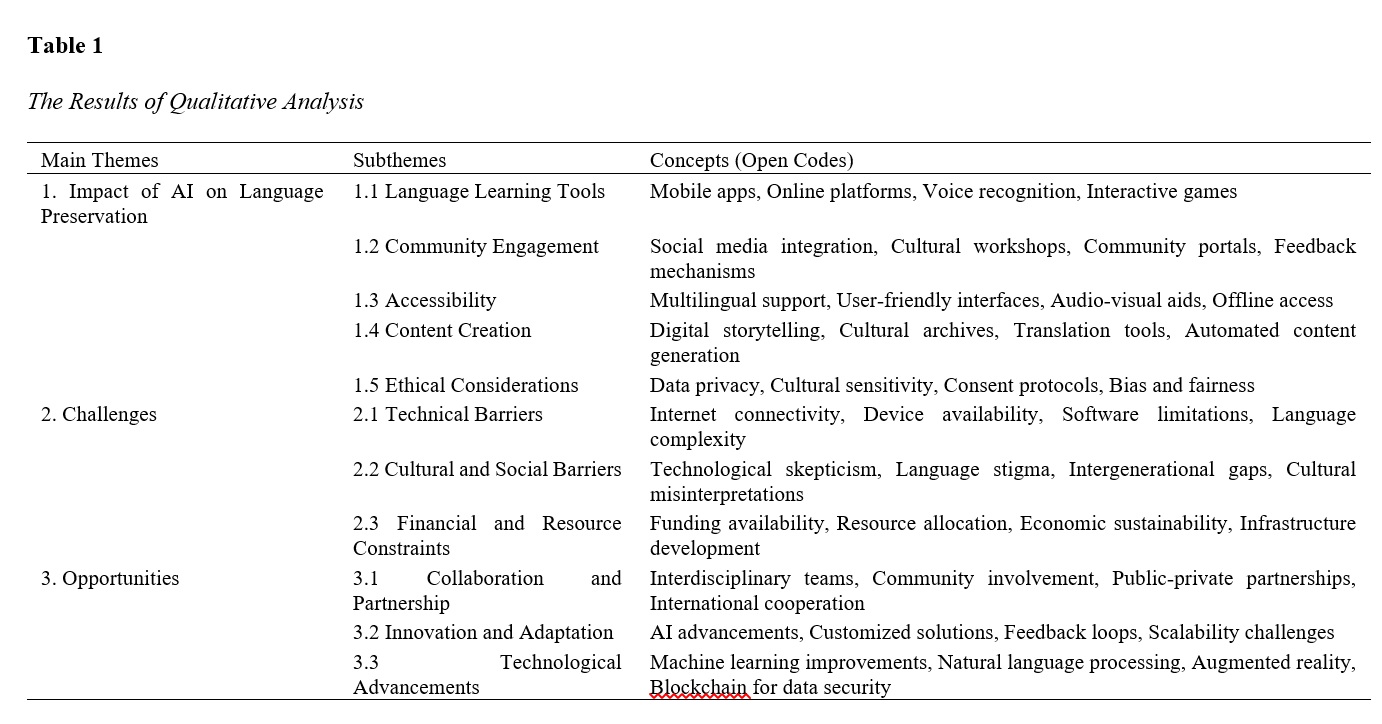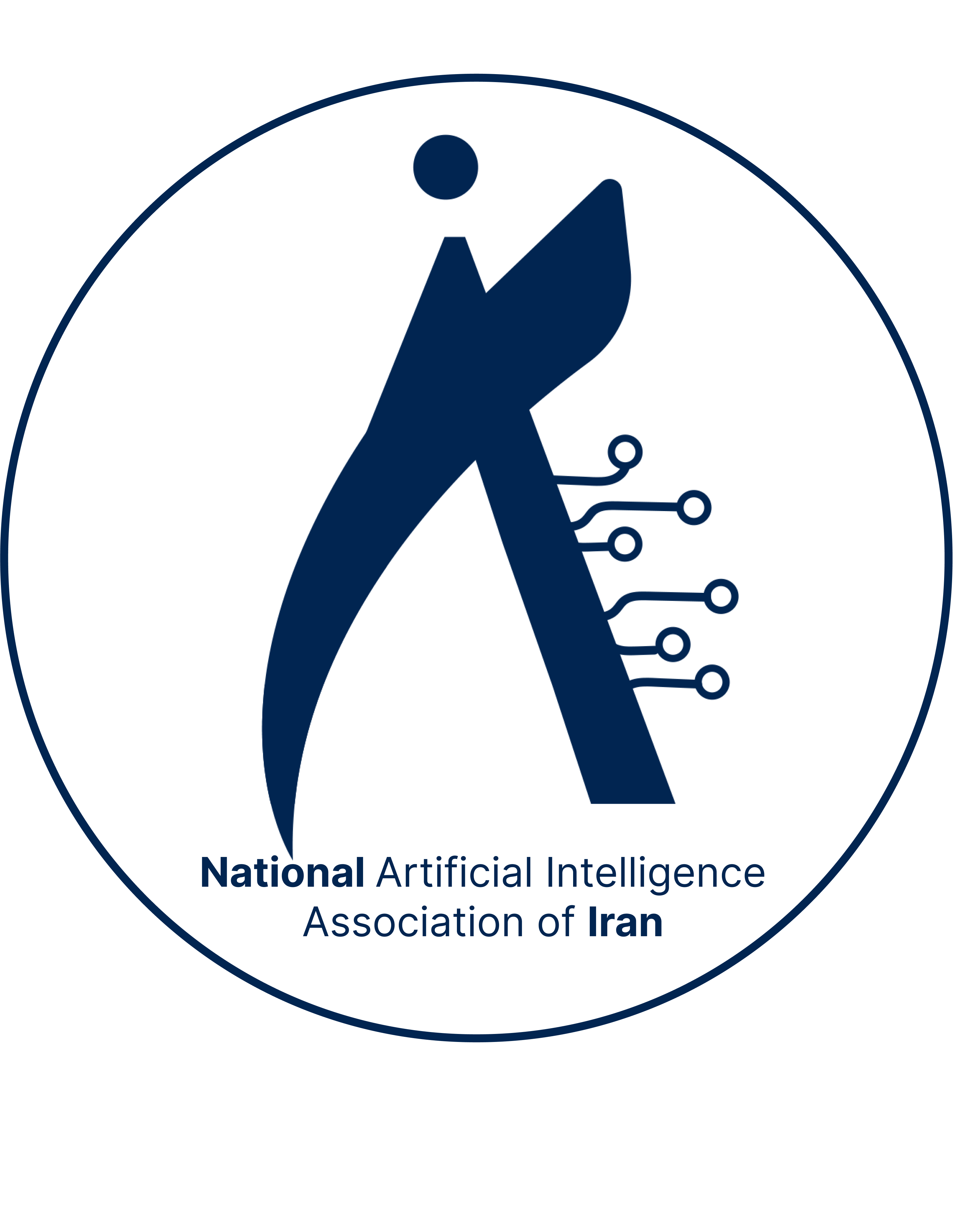The Role of AI in Supporting Indigenous Languages
Keywords:
Indigenous Languages, Language Revitalization, Artificial Intelligence, Cultural Preservation,, Language Learning Tools, Community Engagement, Technological Barriers, Language PolicyAbstract
This study aims to explore the role of AI in supporting indigenous languages, focusing on its impact, the challenges encountered, and the opportunities it presents for language revitalization efforts. Employing a qualitative research design, this study gathered data through semi-structured interviews with 25 participants, including indigenous language speakers, linguists, AI technologists, and cultural preservationists. Thematic analysis was used to identify and categorize the main themes and concepts arising from the interviews. Three main themes were identified: the Impact of AI on Language Preservation, Challenges, and Opportunities. AI was found to significantly support language learning tools, community engagement, accessibility, and content creation while raising ethical considerations. Challenges included technical barriers, cultural and social barriers, and financial and resource constraints. Opportunities for AI in language revitalization were identified in collaboration and partnership, innovation and adaptation, and technological advancements. AI holds substantial potential to support the preservation and revitalization of indigenous languages through tailored learning tools, enhanced accessibility, and community engagement. However, realizing this potential fully requires addressing the identified challenges through collaborative efforts, ethical considerations, and sustained investment in technological and community-based solutions.
Downloads








